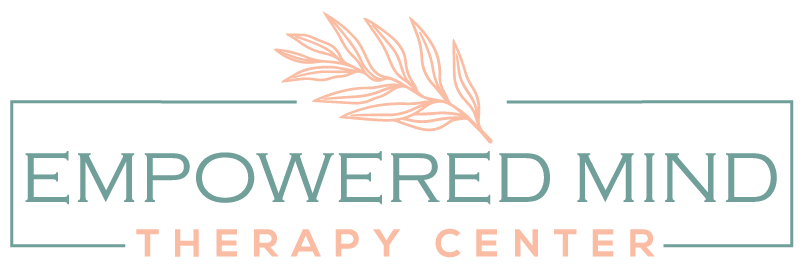Brainspotting for Teen Anxiety and Depression: What Parents Need to Know
One of the most effective techniques we use to support both teens and adults on their healing journeys is Brainspotting. This powerful approach leverages the brain’s natural ability to process and release deeply stored trauma, making it an invaluable tool for those seeking relief from emotional distress and a path to lasting well-being.
What is Brainspotting?
Brainspotting is a brain-based therapy that was developed as a way to access, process, and release trauma stored in the body. It is based on the concept that where you look affects how you feel. During a Brainspotting session, a therapist will guide the client to focus on a specific spot in their visual field, known as a "brainspot." This spot correlates with the activation of a traumatic memory or an emotional experience stored in the brain.
By focusing on this brainspot, the client can access deep, unprocessed trauma and emotions, allowing them to process and release these experiences in a safe and controlled environment. Brainspotting bypasses the more cognitive, thinking parts of the brain and goes straight to the deeper, emotional brain, where trauma is often stored. This makes it an incredibly effective tool for healing from trauma, anxiety, and depression.
How Brainspotting Supports Teens
Gentle and Non-Invasive: For teens, who may find it difficult to articulate their emotions or traumatic experiences, Brainspotting offers a non-invasive way to process these feelings without having to talk extensively about them. This makes it an ideal therapy for young people who may be reluctant to engage in traditional talk therapy.
Reduces Anxiety and Depression: Brainspotting helps teens identify and release the emotional blocks that contribute to anxiety and depression. By accessing the deeper layers of the brain, this therapy can bring about profound changes in mood and emotional well-being.
Supports Emotional Regulation: Teens often struggle with managing their emotions, particularly when they are overwhelmed by anxiety or depression. Brainspotting helps them develop better emotional regulation by processing and releasing the underlying trauma or stressors that contribute to these feelings.
Builds Resilience: Through Brainspotting, teens can build resilience by working through their emotional challenges and emerging stronger and more capable of handling future stressors.
How Brainspotting Supports Adults
Addresses Deep-Seated Trauma: For adults, Brainspotting is particularly effective in addressing trauma that has been stored in the body for years, even decades. This therapy can help adults process and release trauma that may be affecting their mental and physical health.
Enhances Self-Awareness: Brainspotting encourages a deep connection between the mind and body, allowing adults to become more aware of their emotional responses and triggers. This increased self-awareness can lead to more effective coping strategies and a greater sense of control over one’s emotions.
Reduces Symptoms of Anxiety and Depression: Just as with teens, Brainspotting helps adults access and process the underlying emotional issues that contribute to anxiety and depression. By addressing these root causes, Brainspotting can lead to lasting relief from these conditions.
Promotes Overall Well-Being: By processing and releasing stored trauma and emotional blocks, Brainspotting can lead to improved mental, emotional, and even physical well-being. Many clients report feeling lighter, more grounded, and more connected to themselves after Brainspotting sessions.
Why Choose EMTC for Brainspotting?
At EMTC, our therapists are highly trained in Brainspotting and have extensive experience working with both teens and adults. We understand that each individual’s experience with trauma, anxiety, and depression is unique, and we tailor our approach to meet the specific needs of each client.
Our commitment to providing culturally responsive care means that we are especially attuned to the unique challenges faced by BIPOC individuals. We create a safe, supportive environment where healing can happen, and we are dedicated to empowering our clients to live their fullest, healthiest lives.
Looking for support with generational trauma in Walnut Creek, Oakland, or the greater San Francisco Bay Area?
At Empowered Mind Therapy Center, we are dedicated to offering compassionate care and unwavering support for individuals who are seeking personal growth and healing. Our highly experienced therapists specialize in trauma-informed therapy, ensuring you receive the utmost care and understanding.
Whether you call Walnut Creek, Hayward, or any other corner of the San Francisco Bay Area home, rest assured that we offer evidence-based treatment options customized to meet your unique needs. Our goal is to empower and support you on your path to healing and personal growth.
Our commitment to your well-being is unwavering. Let us be your source of strength and support as you journey towards healing and resilience.
If you're interested in starting counseling at Empowered Mind Therapy, follow these steps:
Get in touch with our Intake Coordinator at 925-257-0205 or book your free consultation.
Get started on your healing journey and finally feel better.
Other Services We Offer in the San Francisco Bay Area & Throughout California
In addition to providing online therapy, we also offer a variety of counseling services for women of color. This includes relief and support for depression, processing trauma, anxiety support, and relationship issues. Our caring therapists also offer Brainspotting, EMDR & EMDR Intensives. All of these services are available in person at our Walnut Creek, CA-based therapy practice or online throughout California.
About The Author
Vanessa Solis, LCSW is a Certified EMDR therapist & Approved EMDR Consultant in the San Francisco Bay Area, offering EMDR Intensives in person and online throughout California. She is the Owner and Director of Empowered Mind Therapy Center, a therapy community where women of color thrive.




